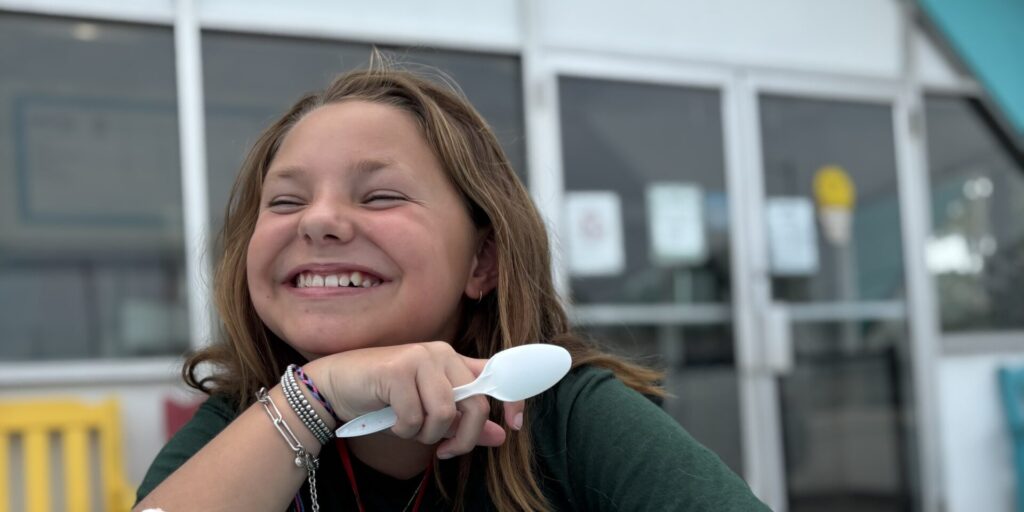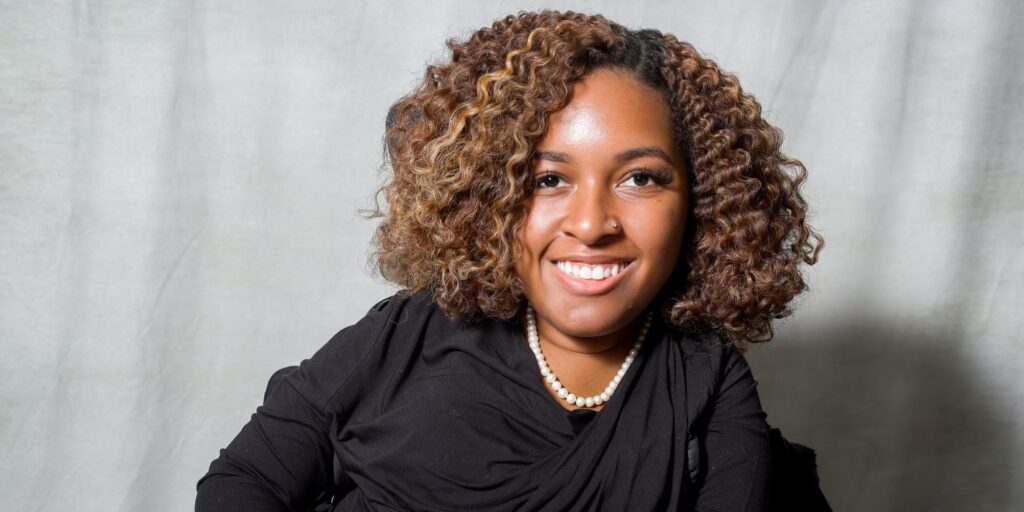![iStock-2177800955 [Converted] no back Illustration showing the figures of people in various colors and designs](https://mdaquest.org/wp-content/uploads/2025/08/IMPACT-Hero-iStock-2177800955-e1755617673880-1024x512.jpg)
MDA Community Programs Support and Empower
By Amy Bernstein | Tuesday, August 19, 2025
For 75 years, MDA has been dedicated to standing by your side, offering hope, connection, and community. From the earliest days, our mission has been centered around ensuring that you have the resources, care, and support you need to live stronger and more independently.
How we accomplish our mission has evolved through the years — as have so many aspects of life in the last three quarters of a century. What hasn’t changed is our commitment to supporting and empowering you, our community, to navigate the complexities of living with a neuromuscular disease.
“When I think of MDA, I think of hope,” says Lily Sander, an MDA National Ambassador from Charlotte, North Carolina, who lives with Charcot-Marie-Tooth disease (CMT). “It’s a powerful hope for brighter days where treatments, cures, and an end to these conditions are not just dreams, but a tangible reality. MDA embodies this hope by focusing on advancements today that lead to breakthroughs tomorrow. But their impact goes beyond research; they also provide vital patient support and everything in between, ensuring that families receive the care and resources they need right now.”
Here, we take a look at the many MDA programs, services, and resources that directly impact members of our community, and how we meet you wherever you are in your neuromuscular disease journey.
Specialized Neuromuscular Care
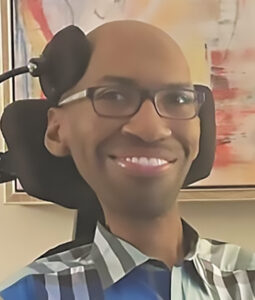
“MDA has been my source of hope, helping me thrive with my neuromuscular condition. Their support has guided me through challenges and helped me become the best version of myself.” — Ira, spinal muscular atrophy (SMA), West Palm Beach, FL
MDA Care Centers started in 1953 with two locations in New York. Now, the MDA Care Center Network comprises more than 150 Care Centers providing comprehensive, specialized neuromuscular care at top medical institutions nationwide.
From the early days, MDA recognized the importance of coordinated care, bringing together experts in various fields to offer patients a holistic approach to treatment. This approach is called multidisciplinary care.
Research shows that multidisciplinary care is especially beneficial for people with rare diseases and complex care needs. Bringing together a range of skills and knowledge improves the quality of care and provides patients and their families with more resources and support.
It also adds convenience. “Multidisciplinary care means one journey, one team, one place,” says Nora Capocci, MDA’s Executive Vice President of Healthcare Services. “By bringing multiple specialists together under one roof, we turn a series of appointments into a single, supportive experience — giving families more time for what truly matters.”
Healthcare providers also appreciate the opportunity to coordinate and collaborate on their patients’ care. “MDA has provided the opportunity to engage in a multidisciplinary team approach,” says Mercedes Medeiros, a social worker at the MDA Care Center at Rhode Island Hospital in Providence, Rhode Island. “This allows us to address not only our patients’ neuromuscular needs, but their basic needs as well. We also have access to a local representative who is knowledgeable regarding MDA resources available to our patients.”
Through personalized care plans, access to clinical trials, and state-of-the-art treatments, MDA Care Centers have dramatically improved patient outcomes. Patients benefit from the expertise of leading clinicians and the support of a multidisciplinary team dedicated to their well-being. The network has become a lifeline for families, offering hope, continuity of care, and the latest advancements in treatment.
“I was able to get a clearer understanding of my diagnosis and speak with doctors who knew and understood my concerns and what I was going through,” says Henryne Dillard, who lives with limb-girdle muscular dystrophy (LGMD) in Stockton, California.
Moving into the future, MDA’s Care Center Network will continue to lead the way in providing access to exceptional care that adapts to the needs of the neuromuscular community.
Support for Those Living with Neuromuscular Diseases
We know that families across the country rely on MDA for guidance, support, and access to vital services, so we offer several ways to connect one-on-one with MDA specialists. From answering questions about gene therapy to helping you find durable medical equipment, our specialists are ready to assist you and your family on your neuromuscular disease journey.
The Resource Center is known as the “front door to MDA.”
It helps individuals, family members, and caregivers find answers to their questions and discover MDA programs and local resources. The Resource Center is staffed by a team of dedicated and caring staff who are available to assist by phone or email.
MDA Connect gives community members the opportunity to have a 30-minute one-on-one video call with an MDA Support Specialist. These specialists can provide information on education, careers, accessibility, caregiving, transportation, community engagement, general disease education, and more. MDA also has Support Specialists with experience living with neuromuscular diseases and healthcare backgrounds who can help individuals and families navigate MDA Care Center visits.
MDA’s Gene Therapy Support Network offers education and support to community members who are eligible to receive gene therapy or who want to learn more about it. Gene Therapy Support Specialists can help you access gene therapy or navigate insurance, answer general questions, and share resources. You can connect with a Gene Therapy Support Specialist by phone, email, or video call.
Whether through our Resource Center or online support, we’ve helped countless people manage their conditions and find hope in the face of challenges. Our resources have empowered families to make informed decisions and take control of their healthcare journeys.
“MDA meets people where they are and has a variety of options, so they don’t need to navigate things alone,” says Alicia Dobosz, MDA’s Executive Vice President of Community Engagement.
Neuromuscular Disease Education: Practical and Actionable
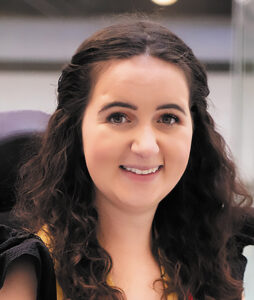
“MDA has impacted my family in a positive way. I gained lifelong friends and a support system. MDA has helped me embrace my disability to my fullest capacity.” — Olivia, CMD, Liberty, MO
“Community Education is a staple of MDA because it embodies MDA’s mission, which is to support the independence of those we serve,” says Marissa Lozano, MDA’s Director of Community Education. “That’s exactly what our programs and print materials do ― give people tools and resources to help them feel empowered.”
Offerings range from in-person symposiums to online webinars and workshops to printable fact sheets. They span disease-specific topics and new therapies, as well as issues related to daily living, social-emotional well-being, caregiving, and more. All are offered at no cost.
Program speakers include clinicians, healthcare providers, and researchers who are leaders in the neuromuscular field, as well as advocates, community members, and others who understand the experience of living with or caring for someone with a neuromuscular disease.
“Informing people and empowering them to make decisions in their care and in their lives is a big part of Community Education. It’s not just the information, but what you can do with that information,” Marissa says.
In addition to providing timely, actionable information, many Community Education programs create opportunities for community members to meet and connect. Marissa points to the Next Steps Seminars, which focus on navigating major life transitions, as an example. “Our Next Steps Seminars are not your traditional webinar, where you just listen to a presenter,” she says. “We encourage people to unmute, turn on their cameras, and interact. You get to have conversations and share resources.”
Conversations between community members are a valuable aspect of in-person programs. “We had a family who traveled from Ohio to Atlanta for one of our in-person Engage Symposiums, and it was the first time their son met somebody with the same diagnosis. It was extremely powerful,” Marissa says. “I think that’s where the impact of education comes in.”
Elevating NMD Awareness With Advocacy
“MDA has always excelled at elevating awareness for neuromuscular diseases,” says Paul Melmeyer, MDA’s Executive Vice President of Public Policy and Advocacy.
This legacy began in 1950, when a group of families affected by muscular dystrophy established MDA. It continued with the MDA Labor Day Telethon, hosted by the legendary Jerry Lewis from 1966 to 2011. Today, it is carried on by MDA’s Public Policy and Advocacy team, which works tirelessly to champion issues important to people with neuromuscular diseases. Along with promoting access to care, disability policy, and accelerating drug development, the team also organizes and empowers MDA’s grassroots advocates. These community members contact lawmakers and work in their neighborhoods to raise awareness of issues that affect the neuromuscular disease community.
MDA’s advocacy has led to increased research funding for neuromuscular diseases and innovations in drug development for rare diseases, as well as important legislation, such as the MD-CARE Act, Newborn Screening Saves Lives Act, ACT for ALS, and accessible air travel reforms in the Federal Aviation Administration (FAA) Reauthorization Act.
“None of these accomplishments would have been possible if it wasn’t for our advocates,” Paul says. “Members of our community are leading the way with their voices. It’s their experiences that drive lawmakers to enact transformative policy reforms.”
That’s why MDA Ambassadors are an essential part of the effort to raise neuromuscular disease awareness. Every year, MDA selects two National Ambassadors from the hundreds of general MDA Ambassadors who share their stories and perspectives at MDA events and on platforms such as Quest Media.
“It’s the people who are delivering those stories that actually make things change,” Paul says.
[H2] Empowering the Lives of Those Living With Neuromuscular Diseases
The impact of MDA’s recreation programs is evident in the way they transform lives. Kids who go to MDA Summer Camp gain lifelong friends. MDA College Scholarship winners pursue their academic dreams. Young adults in MDA’s Mentorship Program gain confidence and discover new opportunities.
MDA Summer Camp (mda.org/Summer Camp), the first program of its kind, started in 1955 to give youth with neuromuscular diseases a true camp experience.
“MDA Summer Camp is a perfect example of a program that equips individuals to live independent lives,” Alicia says. “Spending a week at camp and trying new things while learning how to advocate for their needs with new caregivers — every aspect of the program is designed to build confidence, expand thinking, and create opportunities to feel excited about the future. This beloved program is life-changing for all involved and is central to our mission.”
In recent years, MDA has created new programs to support young people with neuromuscular diseases beyond the camp years.
“Given the immense progress made in the last decade, many individuals are pursuing higher education, careers, and independent living,” Alicia says. “We created programs that not only financially support the cost of higher education but provide additional support for people pursuing their dreams.”
The MDA College Scholarship program grants merit-based scholarships of up to $5,000 to students living with neuromuscular diseases who demonstrate leadership qualities. Scholars are eligible to apply for additional support for up to four years. In 2024, MDA provided scholarships to 10 promising students.
Individuals with disabilities are often underrepresented in career fields. Yet, research shows diversity in the workforce drives innovation. MDA’s Mentorship Program aims to increase the number of people living with neuromuscular diseases in the workforce by connecting youth to mentors in a variety of fields. These five-week virtual programs are open to young adults with neuromuscular disease ages 14-21. An application is required, but there is no cost to participate.
“The Mentorship Program connects individuals with peers and mentors who have navigated similar journeys and exposes youth to a variety of career options to consider,” Alicia says. “It’s powerful to have a role model who can help you see yourself in a career.”
The ripple effect of these programs extends beyond individual participants to strengthen families and communities.
Connecting People Living With Neuromuscular Diseases
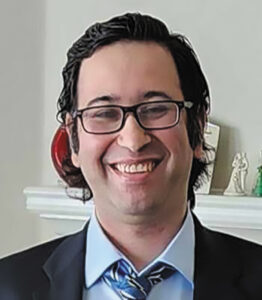
“When I first think of MDA, I think of a community of people who live with neuromuscular diseases, like me, but also as a place where there is empathy and respect for me. As a kid, I used to be afraid of my disabilities because I was bullied. Five years ago, I became an MDA Ambassador, and never did I imagine how many doors it would open for me. Probably the biggest door MDA opened for me was the door of independence.” — Rodrigo, congenital muscular dystrophy (CMD), Dallas, TX
Community members formed MDA, and we still consider it our mission to foster connections and create a sense of belonging among people living with neuromuscular diseases. That’s why we’ve developed programs that bring individuals and families together to have fun, like Let’s Play and Family Getaways.
Let’s Play is an online community for gaming and camaraderie. The centerpiece of Let’s Play is a custom Discord channel, a group messaging platform popular among youth and the online gaming community. Through the Discord channel, individuals, families, and MDA supporters can play games together and interact. Let’s Play also has a channel on Twitch, a live-streaming platform, where gamers share their gameplay, or people can gather virtually for special events like movie nights, talent shows, and more. It’s a safe and welcoming place to play, connect, and make friends.
Family Getaways were created to offer an accessible outdoor recreation experience for families to enjoy together. Provided at no cost, this program offers a weekend for families to spend time in nature, participate in activities, and gather around a campfire with other MDA families.
“Summer Camp is an invaluable experience and core program for MDA, but we felt that we could expand the impact of a recreation experience to engage the whole family,” Alicia says.
MDA also recognizes that our community members are a vital source of support for one another. The MDA Peer Connections Program helps members of the neuromuscular disease community build bonds with one another — across the country or in their neighborhoods. By request, MDA Support Specialists will make introductions between individuals with similar diagnoses or interests, and the individuals can decide when and how to connect. The program is open to individuals with neuromuscular diseases or their caregivers, parents, spouses, or siblings and has made more than 300 connections since it started.
MDA Community Support Groups are supportive online groups that provide safe spaces to interact, gather resources, and exchange valuable information with others in the neuromuscular disease community. MDA has established several groups for people in specific circumstances, such as parents of kids with neuromuscular diseases and families living with ALS.
MDA’s community programs have always been about more than support; they’ve been about fortifying families.
Pursuing Progress for the NMD Community
Looking ahead, MDA is expanding and enhancing our resources to meet the evolving needs of the community. We’re continuing to invest in digital platforms, virtual support networks, and innovative outreach programs to ensure that every family, regardless of location, has access to the care and support they need.
“Our programming truly is constantly evolving to ensure we are offering a variety of options and connection points for all individuals,” Alicia says.
MDA National Ambassador Ira Walker, who lives in Florida with spinal muscular atrophy (SMA), says it best: “When I think of MDA, the first thing that comes to mind is community. MDA is truly the community that those with neuromuscular conditions need. It’s the community that listens, understands, and unites us while propelling us toward our very best days.”
Amy Bernstein is a writer and editor for Quest Media.
NMD Support Every Step of the Way
While each neuromuscular disease journey is unique, they all have one thing in common: MDA can be an invaluable guide and resource. Here are some of the many ways MDA touches lives at different points in the journey.
Getting a New Diagnosis
The MDA Resource Center is the place to start for individuals, family members, and caregivers who have questions. Translators are available for more than 100 languages.
MDA’s Print-Ready Educational Materials include Disease Fact Sheets and helpful guides on topics related to neuromuscular diseases.
Finding the Right Care
MDA Support Specialists can assist with finding MDA Care Centers and navigating visits. You can schedule a video call or an in-person meeting at an MDA Care Center.
Access Workshop: Access to Medical Care is an engaging online learning module that covers the essentials of neuromuscular care.
Considering Gene Therapy
The Gene Therapy Support Network offers education about gene therapy and support to anyone eligible to receive a gene therapy.
Gene Therapy Support Specialists are available for video calls, phone calls, or emails to talk about anything gene therapy-related.
Living Well with a Neuromuscular Disease
MDA Community Education produces webinars and online workshops on topics of daily living, social-emotional well-being, and caregiving.
MDA’s Mental Health Hub provides mental health resources tailored to individuals with neuromuscular diseases and their families and caregivers.
Connecting with Others
Family Getaways are group experiences at accessible destinations, provided at no cost, for families affected by neuromuscular diseases.
Community Support Groups are safe places to get to know others with similar experiences and learn from each other.
Transitioning to Adulthood
MDA’s Print-Ready Educational Materials include guides to moving from pediatric to adult healthcare and preparing for college. Select “Transition to Adulthood” at mda.org/education.
Next Steps Seminar: Transition to Adulthood is a live, interactive online seminar for people ages 14-26 living with neuromuscular diseases.
Pursuing Employment
Access Workshop: Access to Employment is an online learning module that covers disability rights and workplace considerations.
Career Quest is Quest Media’s employment resource hub, with content on finding job opportunities, interviewing, and advocating for yourself.
Next Steps and Useful Resources
- Read more about MDA’s care and services
- MDA’s Resource Center can provide support, guidance, and resources at every stage of your journey. Contact the MDA Resource Center at 833-ASK-MDA1 (833-275-6321) or email ResourceCenter@mdaUSA.org.
- Stay up to date on Quest content! Subscribe to Quest Magazine and Newsletter.
Disclaimer: No content on this site should ever be used as a substitute for direct medical advice from your doctor or other qualified clinician.


